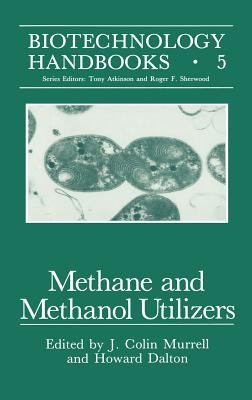
- Mēs nosūtīsim 10-14 darba dienu laikā.
- Izdevējs Springer
- Gads: 1992
- ISBN-10 : 030643878X
- ISBN-13 : 9780306438783
- Formāts: 15.6 x 23.4 x 1.8 cm, kieti viršeliai
- Valoda: Anglų
- Extra -10% atlaide, ievadot kodu: EXTRA
Methane and Methanol Utilizers + bezmaksas piegāde! | Bookbook.lv
Atsauksmes
Apraksts
Methane and its oxidation product, methanol, have occupied an important position in the chemical industry for many years: the former as a feedstock, the latter as a primary chemical from which many products are produced. More recently, the role played by methane as a potent greenhouse gas has aroused considerable attention from environmentalists and clima- tologists alike. This role for C compounds has, of course, been quite 1 incidental to the myriad of microorganisms on this planet that have adapted their life-styles to take advantage of these readily available am- bient sources. Methane, a renewable energy source that will always be with us, is actually a difficult molecule to activate; so any microorganism that can effect this may point the way to catalytic chemists looking for con- trollable methane oxidation. Methanol, formed as a breakdown product of plant material, is also ubiquitous and has also encouraged the growth of prokaryotes and eukaryotes alike. In an attempt to give a balanced view of how microorganisms have been able to exploit these simple carbon sources, we have asked a number ofleading scientists (modesty forbids our own inclusion here) to contribute chapters on their specialist areas of the subject.10 EXTRA % atlaide
Kupona kods: EXTRA
Akcija beidzas 7d.02:27:23
Atlaides kods derīgs pirkumiem no 10 €. Atlaides nav kumulatīvas.
Derīgs tikai pirkumiem tiešsaistē.

- Izdevējs Springer
- Gads: 1992
- ISBN-10: 030643878X
- ISBN-13: 9780306438783
- Formāts 15.6 x 23.4 x 1.8 cm, kieti viršeliai
- Valoda: Anglų

Atsauksmes